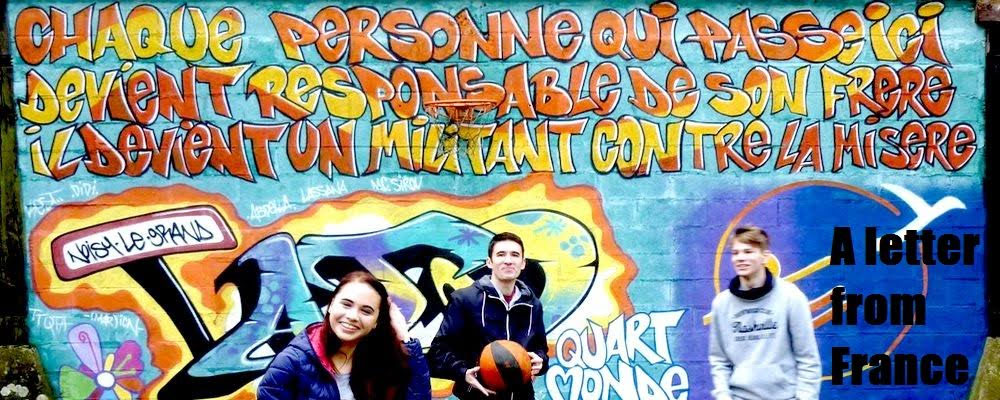Young People Determined to Make a Difference

“It’s worth helping others. In the future you may need to get help. We are not created in the world to just be for ourselves but to help others.”
These words, spoken by Hubert from Poland, express the feelings of the young people who gathered from around Europe recently to discuss how they could help end poverty. The Irish group joined other young people from Spain, Belgium, Switzerland, and France for a weekend of workshops, training and cultural exchange held by ATD Fourth World in Champeaux, France.
Three adventurous young Irish people from a variety of backgrounds devoted one of their precious weekends to attend the “Djynamo” Youth Meeting. They met others their age who are equally hopeful about the future and determined to learn how they can help address poverty in their own country. Together, they worked on homelessness, migration, communication, how to facilitate group activities effectively, and other topics. The groups from different countries exchanged ideas for useful activities they could do when they returned home.
The weekend was also an opportunity for the young people from Ireland to think about how poverty might affect people differently in a different country. For example, through interviews with their new Polish friends, the Irish group learned that the young people from Poland see poverty from different perspectives.
One girl felt that poverty is generally worse in the Polish countryside than in the cities. She said that in rural areas there is less access to work, to services and to institutions. The majority of the countryside’s inhabitants are farmers – and for some years agriculture has become less and less profitable. Even if people have a house and farm, there are fewer customers to buy what they produce. Farmers cannot find different work because they rarely have higher education or other professional training. In the countryside there are no homeless people because generally they have their family home, yet poverty seems worse there.
Another view expressed was that fewer people are seen living on the street in Warsaw than in other European cities. Others disagreed, however, saying they see many homeless people on the streets in Warsaw, especially in the centre or the old city. They all agreed, however, that housing is very expensive in the city and this contributes greatly to homelessness. Despite the lack of public housing and the high price of real estate, housing and homelessness issues do not appear often in the Polish media. Instead, there is a greater focus on health care and general politics.
The Polish group told the Irish young people that the problem goes beyond a lack of housing. Homeless people in Warsaw are told to get off the trains and are not respected by others even though they are the same as everyone else. There are homeless shelters in Warsaw but some people don’t want to stay there.
In return, the Irish young people were able to tell those from Poland about the housing crisis in Dublin where homelessness is increasing all the time. As in Warsaw, there is a tremendous lack of low-cost housing in Dublin. The Irish group also made a presentation on the Easter Rising of 1916, a significant rebellion in the Irish struggle for independence from the United Kingdom. As it is now the centenary of 1916, the uprising is being celebrated this year for its ideals of religious and civil freedom, equal rights and opportunities, as well as its call “to cherish all the children of the nation equally”. In addition to these more serious issues, the Irish group was able to clarify for the Poles the identity of the mysterious green man with a pot of gold who often shows up when Ireland is mentioned—a leprechaun!
The Irish young people and others all talked about what they can do to help people in poverty. One young man gives money to homeless people sometimes. Some from Poland are involved with a Polish affiliate of Caritas — a Catholic social service organization — that gives out second-hand clothes and organizes activities to help homeless children and adults. While they may not agree with their government’s approach to poverty, the young people felt that is it important to help others as we all need help sometimes and we need to come together to support one another. They also found they have in common a belief in the mission of ATD Fourth World – to help others, especially people in poverty who are excluded and ignored.
All in all, the Irish young people felt the weekend was a great opportunity to meet other young people, to learn lots of new skills, and to discover that the difficulties in other countries are similar to those in Ireland. They would recommend joining a “Djynamo” Youth Meeting to all European young people interested in issues related to poverty. For more information see: http://www.atd-fourthworld.org/what-we-do/participation/youth-activities/


